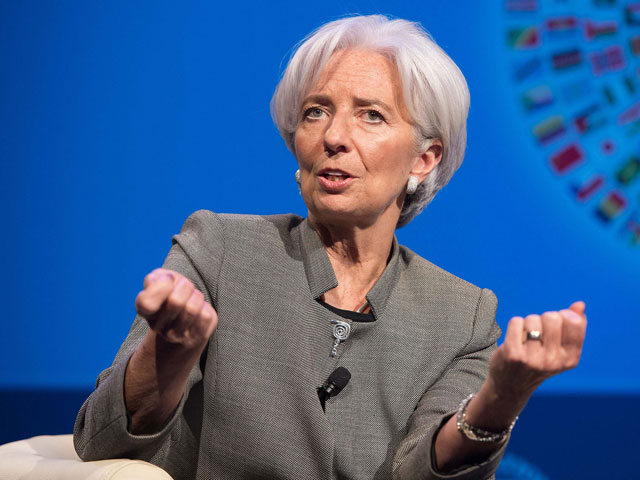
IMF boss Christine Lagarde, unveiling the global lender's latest health check on the British economy just six weeks before Britain votes on whether to remain in the EU, added that Brexit could push the country into recession, echoing comments from Bank of England (BoE) chief Mark Carney.
EU citizens fear Brexit more than the Brits: survey
The latest warning comes as Prime Minister David Cameron campaigns fervently to keep Britain in the 28-nation EU in a referendum on June 23.
Leave supporters, which hit out against Carney for his and the BoE's stance on Thursday, also criticised the IMF's intervention.
"IMF has talked down the UK's economy before and has been wrong in past forecasts about the UK and other countries," read a tweet from the official Leave campaign.
Lagarde admitted Friday that sometimes the IMF is wrong.
"We are one of the very few institutions that actually acknowledge when we are wrong... but on that particular one which relates to the negative consequences of Leave vote, we have looked very carefully at the whole range of existing opinions (and) calculations."
Opinion polls are showing that the nation is still largely undecided.
Lagarde, speaking at the Treasury in central London, told reporters that the IMF's findings were not politically motivated.
Brexit could shrink UK economy by six percent: Treasury
"We're not doing it out of politics -- this is not the job of the IMF.
"We are doing it because it's a significant downside risk, number one. Second, it's not just a domestic issue... it's an international issue.
"I don't think that in the last six months I have visited a country anywhere in the world where I have not been asked 'what will be the economic consequences of Brexit?'."
The IMF meanwhile forecast the British economy would rebound in the second half of this year if the country stays in the EU.
"Assuming that... the UK voters choose to remain... we will expect growth to rebound," Lagarde said.
The report was published one day after Carney warned that Brexit could prompt a technical recession, or two straight quarters of economic contraction.
Questioned about Carney's comments, Lagarde told reporters: "A technical recession is one of the probabilities in the downside scenario in case of a Leave vote."
The IMF added that Brexit would spark fresh markets volatility and a lengthy period of uncertainty.
"A vote for exit would precipitate a protracted period of heightened uncertainty, leading to financial market volatility and a hit to output," the report said.
Britain would face consequences if it leaves EU: France's Macron
And it added that global market reaction was "expected to be negative and could be severe" if Britain departs from the bloc.
British finance minister George Osborne, who spoke briefly alongside Lagarde, welcomed the IMF report.
"The IMF are very clear today -- the hit to growth we could expect from a vote to leave would cost our public finances more than the amount we would gain from no longer contributing to the EU budget," he said.
"Put simply, the IMF says a vote to leave costs us money. If we vote to leave, British families will be poorer and Britain will be poorer."
The Washington-based IMF will publish its final pre-referendum report on the British economy around one week before the vote.

















COMMENTS
Comments are moderated and generally will be posted if they are on-topic and not abusive.
For more information, please see our Comments FAQ